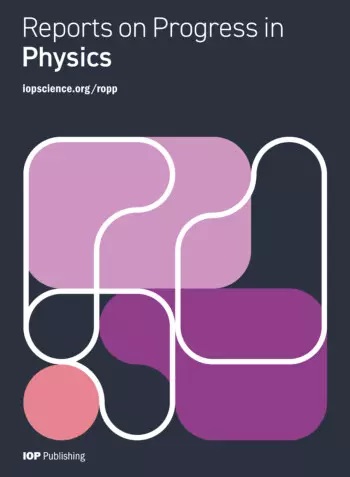Landauer principle and thermodynamics of computation.
IF 20.7
1区 物理与天体物理
Q1 PHYSICS, MULTIDISCIPLINARY
引用次数: 0
Abstract
According to the Landauer principle, any logically irreversible process accompanies entropy production which results in heat dissipation in the environment. Erasing of information, one of the primary logically irreversible processes has a lower bound on heat dissipated into the environment, called the Landuaer bound (LB). However, the practical erasure processes dissipate much more heat than the LB. Recently there have been a few experimental investigations to reach this bound both in the classical and quantum domains. There has also been a spate of activities to enquire about this LB in finite time, with finite size heat baths, non-Markovian and nonequilibrium environment in the quantum regime where the effects of fluctuations and correlation of the systems with the bath can no longer be ignored. This article provides a comprehensive review of the recent progress on the Landauer bound, which serves as a fundamental principle in the thermodynamics of computation. We also provide a perspective for future endeavors in these directions. Furthermore, we review the recent exploration toward establishing energetic bounds of a computational process. We also review the thermodynamic aspects of error correction which is an indispensable part of information processing and computations. In doing so, we briefly discuss the basics of these fields to provide a complete picture. .兰道尔原理和热力学计算。
根据兰道尔原理,任何逻辑上不可逆的过程都伴随着熵的产生,从而导致环境中的散热。擦除信息是逻辑上不可逆的主要过程之一,它有散热到环境中的下限,称为兰德华界(LB)。然而,实际的擦除过程比LB耗散更多的热量。最近有一些实验研究在经典和量子领域都达到了这个界限。也有大量的活动来询问有限时间内的LB,有限大小的热浴,量子体制中的非马尔可夫和非平衡环境,其中波动的影响和系统与热浴的相关性不能再被忽视。本文全面回顾了作为计算热力学基本原理的朗道界的最新进展。我们还为这些方向的未来努力提供了一个视角。
;此外,我们回顾了最近对建立计算过程能量边界的探索。我们还回顾了误差校正的热力学方面,它是信息处理和计算中不可缺少的一部分。在此过程中,我们将简要讨论这些字段的基础知识,以提供一个完整的图像。
本文章由计算机程序翻译,如有差异,请以英文原文为准。
求助全文
约1分钟内获得全文
求助全文
来源期刊

Reports on Progress in Physics
物理-物理:综合
CiteScore
31.90
自引率
0.00%
发文量
45
审稿时长
6-12 weeks
期刊介绍:
Reports on Progress in Physics is a highly selective journal with a mission to publish ground-breaking new research and authoritative invited reviews of the highest quality and significance across all areas of physics and related areas. Articles must be essential reading for specialists, and likely to be of broader multidisciplinary interest with the expectation for long-term scientific impact and influence on the current state and/or future direction of a field.
 求助内容:
求助内容: 应助结果提醒方式:
应助结果提醒方式:


